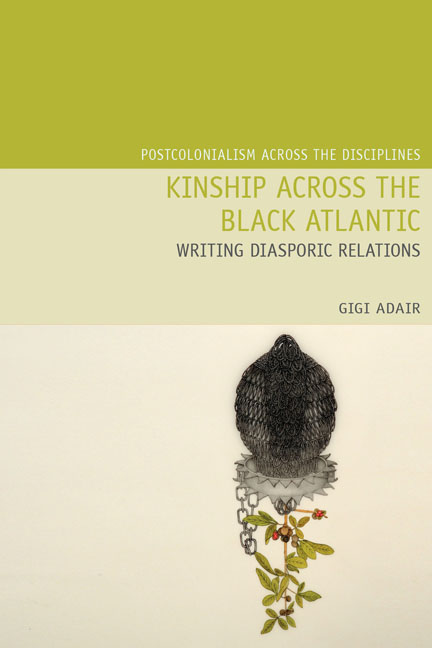1 - Postcolonial sabotage and ethnographic recovery in Jamaica Kincaid's The Autobiography of My Mother
Summary
Despite its ambivalence, the title of Jamaica Kincaid's novel, although paradoxical, makes clear that it is concerned with kinship relations and with the possibility of writing kinship in a colonial language. As a family story and a reflection on the five-hundred-year history of contact and exchange between the indigenous, European and African inhabitants of Dominica, the novel suggests that kinship and colonial history are inevitably intertwined. It reveals the destruction and distortion caused to interpersonal relations by colonial rule and colonial racism, most of all in the realms of intimate relations, family life and kinship. Its tone, which ranges from bleak to sombre to despairing, might qualify it as a ‘literature of recrimination and despair’ (in Derek Walcott's phrase), yet the novel also seeks to inaugurate a new relationship to and between language and history. In particular, it approaches and transforms the legacy of colonial rule via its rewriting of colonial and anthropological travel narratives, particularly James Anthony Froude's The English in the West Indies and Claude Lévi-Strauss's Tristes Tropiques, thereby exploring the possibility of writing as a postcolonial sabotage of imperialist ideology.
By rewriting Lévi-Strauss and colonial–anthropological travel writing, the novel interrogates both colonized relationality and intimacy and the discipline of anthropology, where kinship has been studied, categorized, mapped out and written about most extensively, and where kinship studies long constituted one of the field's main and most sustained interests. The structuralist analysis and approach of Claude Lévi-Strauss has had and, in some contexts, continues to have immense influence; his theory of writing, political power and cultural evolution, and his positing of the incest taboo as the fundamental threshold of all human cultures both continue to reverberate— particularly outside the discipline. In recent decades, interrogations of the history and praxis of anthropology, usually from within the field itself, have excavated some of the epistemological implications and consequences of the discipline's foundations and methods. In addition to critiques of anthropological kinship studies, such as that from David Schneider, numerous scholars have analysed the relationship between anthropology and colonialism.
- Type
- Chapter
- Information
- Kinship Across the Black AtlanticWriting Diasporic Relations, pp. 35 - 58Publisher: Liverpool University PressPrint publication year: 2019



